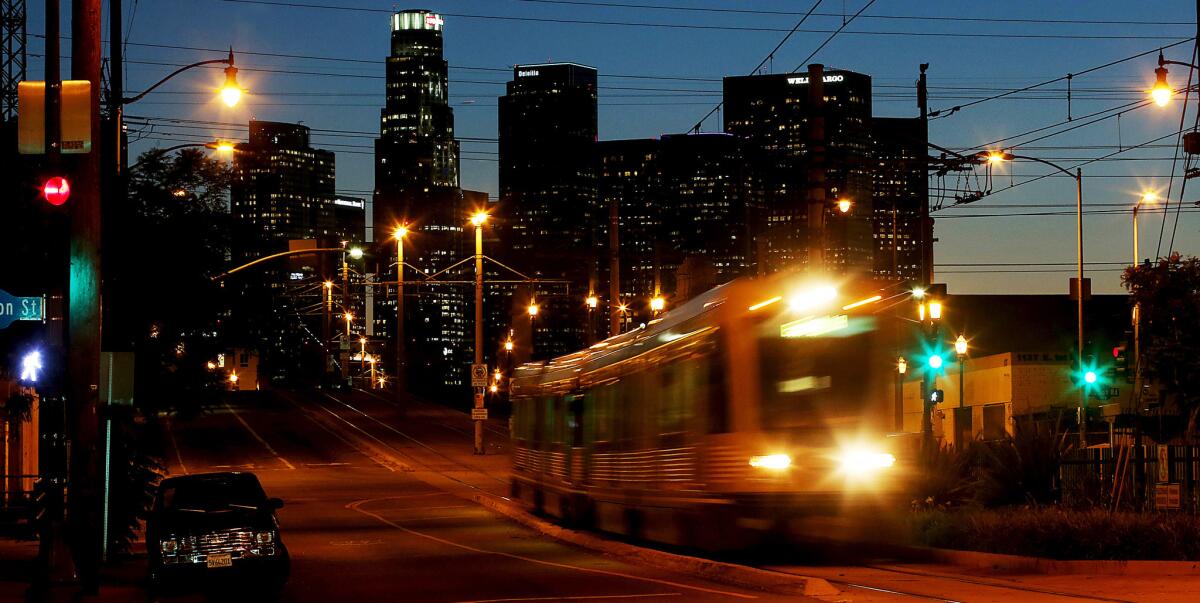Editorial: L.A. transit officials should support affordable housing near rail lines

The Los Angeles Metropolitan Transportation Agency is considering expanding its mission to include the development of affordable housing along transit lines. Metro, which operates the subways, light-rail lines and most of the region’s buses, owns about 50 properties along its lines that could be developed, but until now has been a passive landowner and has generally stayed out of land-use issues.
On the face of it, that makes sense. Why would a government agency want to become involved in something so far outside its core mission? But with five new rail lines under construction and increasing concerns about gentrification and high housing prices along the new transit corridors, Mayor Eric Garcetti, Los Angeles County Supervisor Mark Ridley-Thomas and a handful of other elected officials are pushing Metro to play a larger role in ensuring that new development around transit stops is affordable to the people who use public transit.
On Thursday, Metro’s Board of Directors will consider setting a goal that 35% of all apartments and condos built on land no longer needed by Metro be set aside for low-income residents. To that end, the agency would, for the first time, offer its land for lease or sale at below-market cost for projects that include affordable units. In addition, Metro would kick in $10 million to a new trust fund that would provide seed money to developers to build low-income housing. The board should vote yes.
The idea is to make sure that low- and moderate-income Angelenos — who make up 80% of Metro’s ridership — are not completely priced out of neighborhoods that are expected to undergo a real estate boom after the new rail stations open. This is good public policy, not just because Los Angeles has a housing affordability crisis and half of all households spend at least a third of their income on mortgage or rent.
It also makes good business sense for Metro. There is a real concern that ridership will decline if the housing prices around transit stations skyrocket. Why? Because wealthier residents usually own cars and tend to use transit less than other residents. Workers who earn less than $25,000 and live within half a mile of a transit station are three times more likely to take transit than those who earn more than $75,000 and live close to a station. Metro has an interest in ensuring that the people who ride public transportation can afford to live near it.
Of course, Metro, which is already cash-strapped, can’t shoulder the cost of low-income housing alone. The lack of affordable housing is a regional and state issue that requires new policies that make it easier to build market-rate and subsidized homes.
Follow the Opinion section on Twitter @latimesopinion and Facebook
More to Read
Sign up for Essential California
The most important California stories and recommendations in your inbox every morning.
You may occasionally receive promotional content from the Los Angeles Times.










